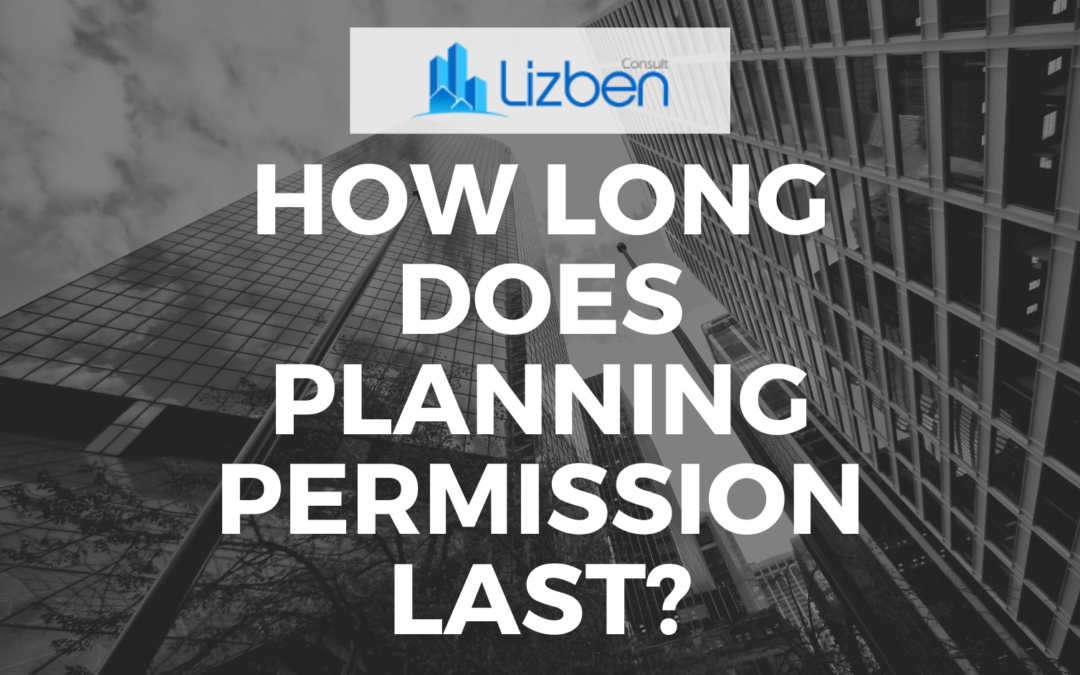Planning permission is granted for a specific period and may be extended on the application if appropriate. The longevity of consent will depend on the type of development proposed, such as A residential dwelling (house) or conversion to a place; A factory; An office building; A caravan site; Anything else which would change the use of land from one service to another. However, you may still have a question in your mind that how long does planning permission last? For this, you first have to know what planning permission is?
What is Planning Permission?
Planning permission is a formal request from a planning authority to the relevant local authority for the power to grant planning permission to a developer. Planning permissions can be applied for at any point within a development or be requested when the product is well underway.
Why do you need planning permission?
Building developments require the planning permission to ensure:
- The proposed product complies with existing planning policies, laws, regulations, and administrative practices in the area;
- It will not adversely affect other residents or properties in the area;
- Access to the affected property is kept secure and safe;
- Properties are preserved and enjoyed as they are.
What happens if you don’t get planning permission?
If you don’t get planning permission, you may have to apply for a temporary exclusion order. The act would result in the loss of an asset of community value. The action does not address traffic or environmental impacts.
Types of planning permissions
Local authorities grant planning permissions on an ‘Applicant Permission’ basis, whereby the applicant must submit a planning application and supporting plans before construction can begin. Each Planning Authority has its form for planning applications, which includes the fees required to process a planning application and the maximum length of time that the planning permission is valid for. To claim planning permission, you must have been given a ‘specific development consent’ by the relevant local authority (usually by submitting a Local Plan), which is generally valid for the duration of the planning permission. Three types of authorization planning authorities will grant to different kinds of development:
Full planning permission
In its consenting process, it accepts a detailed design of the project. If you want your project approved, you must demonstrate that it meets the planning conditions associated with it.
Outline planning permission
Typically, outlines are for larger projects. By applying for approval of the overall idea of your scheme, you submit separate applications for the details when you are ready. You may ask how long does outline planning permission last? Let me answer, it lasts for about five years.
Householder planning permission
You need this type of permission to alter or extend individual houses within a property’s boundaries.
What if a tenant moves out of the property?
Planning permission for a landlord to refurbish or redevelop the property to a new tenancy comes with separate seven-year planning permission. The landlord must apply for another planning permission for this separately and may need a performance notice to notify the tenant that a new application is required.
How long does planning permission last?
The time limit of Planning permission depends on the type of planning. However, it will expire after a limited period. In most cases, it will expire after three years.
Planning consents come with several options if they are about to expire. Initially, you only need to start the project within three years, not complete it. This process is known as a material start.
If you require more time to plan, reapply if you need to. Renewal of planning permission is no longer possible in this case; you must reapply.
It is possible to purchase or sell a plot of land with the attached planning permission for the project.
For your safety, don’t choose a plot with expiring planning permission – the consent will pass before you have a chance to start, and you may even pay more.
Can planning permission be challenged?
The planning authority must consider the information provided by the applicant and inform the applicant of the reason for the refusal.
The applicant may appeal the refusal, the decision made by the planning authority, or any amendments to the application. According to law, public bodies must publish details of appeals on their websites and adhere to the appeal panel’s policy decisions.
How do you get planning permission?
To obtain planning permission, the developer will typically need to apply to a planning authority. Local planning authorities will investigate your application and consider all the relevant information before deciding to approve it.
If you have any queries about the development, you should contact your local planning authority. However, if you already had one permission and it expires, you may consider writing an application for renewal of planning permission. Renewing planning permission may take less time as compared to the issuance of a new license.
What happens if the application is refused?
If they reject your planning permission, you will have to apply again for approval. An appeals panel will then decide the appeal. It is possible to appeal the decisions of the appeal panel to a High Court panel of three judges.
What must I do before I start planning?
Get your proposal and evidence in writing. Read the guidance on planning, and don’t be afraid to challenge planning officers’ proposals.
The planning officers will meet with you in advance of any discussion. You should always attend a pre-discussion meeting with your proposers to discuss all aspects of your proposal to prevent misunderstandings.
Write the first draft of your proposal!
You must provide written supporting information that shows the proposed development will achieve several objectives set out in the Local Development Plan (LDP) and other relevant policies and guidance.
How much does planning permission costs?
Local planning authorities typically grant planning permissions for three years at a time. Costs for planning permission vary depending on the type of development and the type of planning authority. For example, the Welsh Government charges no charge for its planning service or planning advice and guidance. However, many local planning authorities charge an Annual Planning Permit Fee based on the development value. They can range from £750 to more than £6,000 depending on the planning authority and the council it is applied to.
What happens once planning permission is granted?
If your application is successful, you will need to submit a planning application to the local authority. After that, you will be able o start your construction work.
When working with a house plan, it’s essential to make sure you don’t exceed the square footage of your property. If you are building an extension on your home, it’s also necessary to apply for construction permission before starting construction. You should take planning permission seriously, and to ensure you don’t make a mistake, we recommend taking advice from an experienced building contractor. In this way, you will get to know most about the planning permission, including how long does planning permission last.


